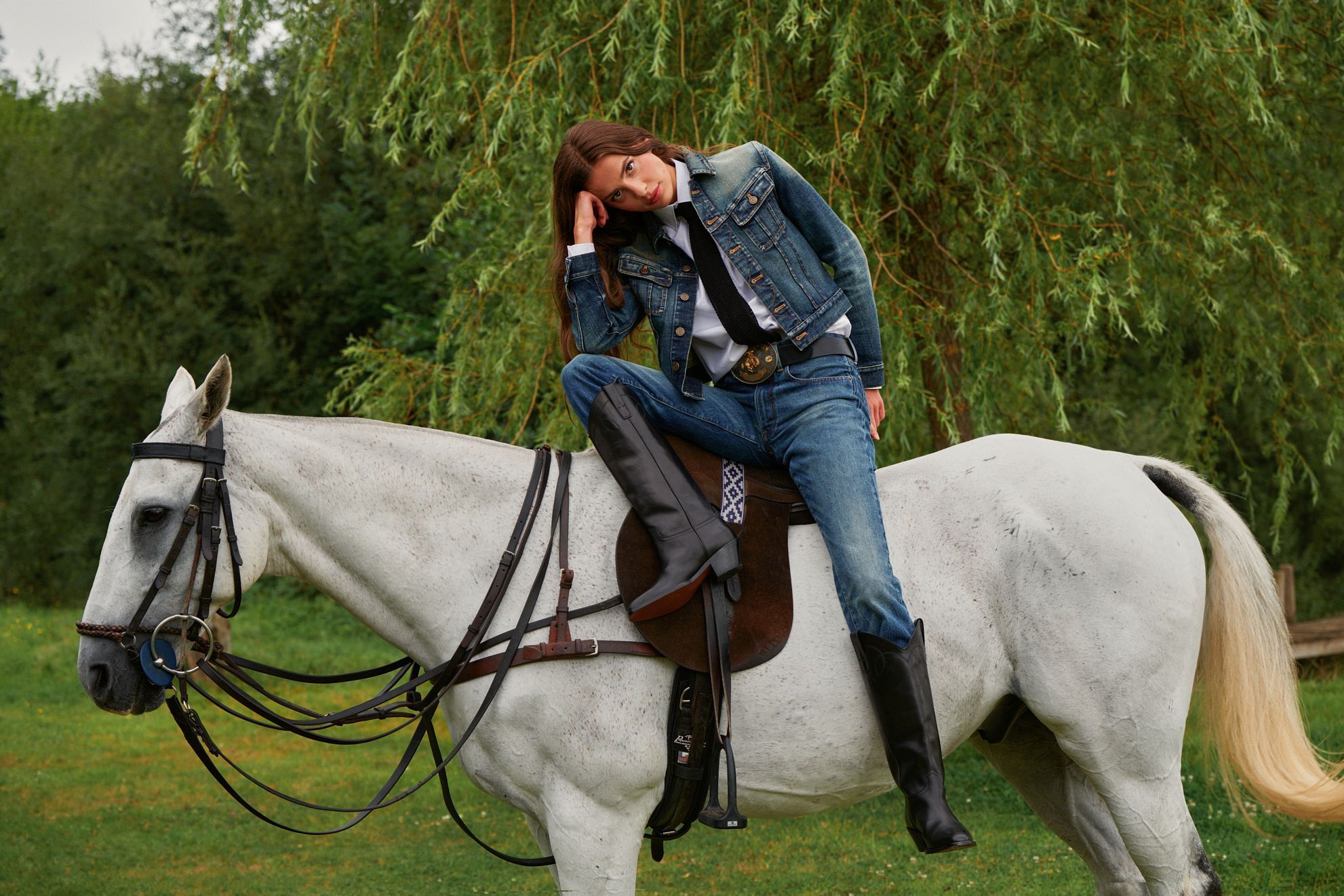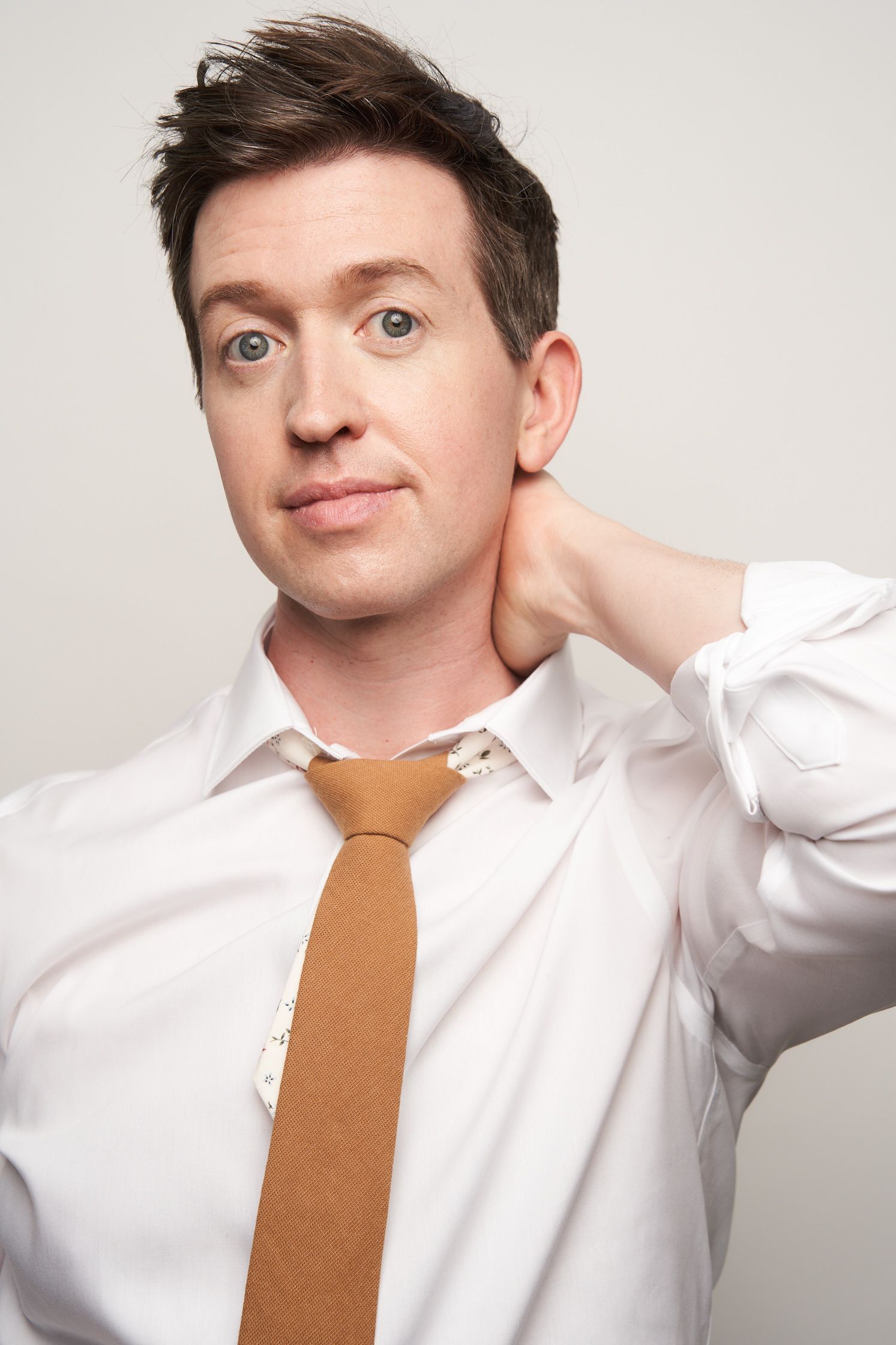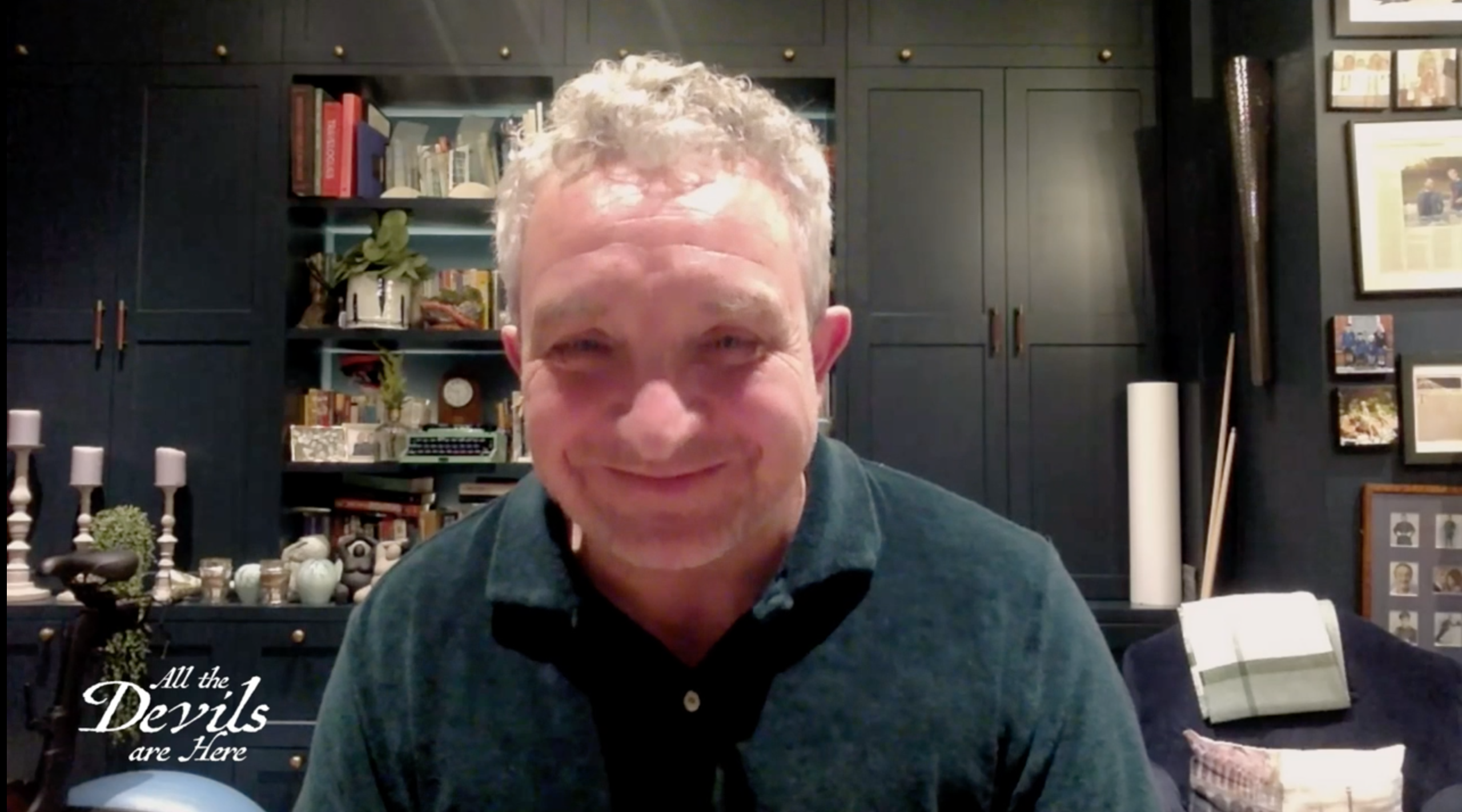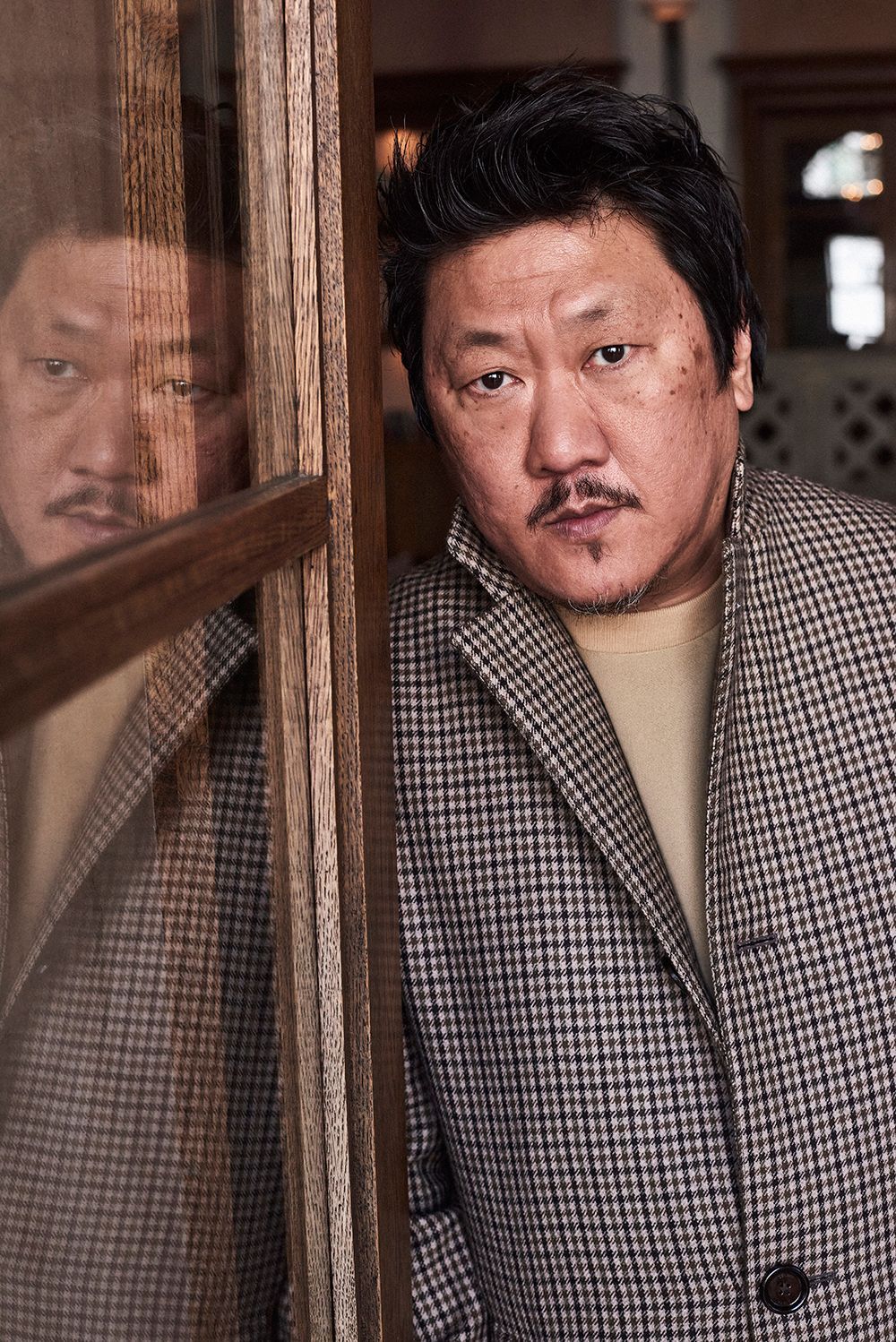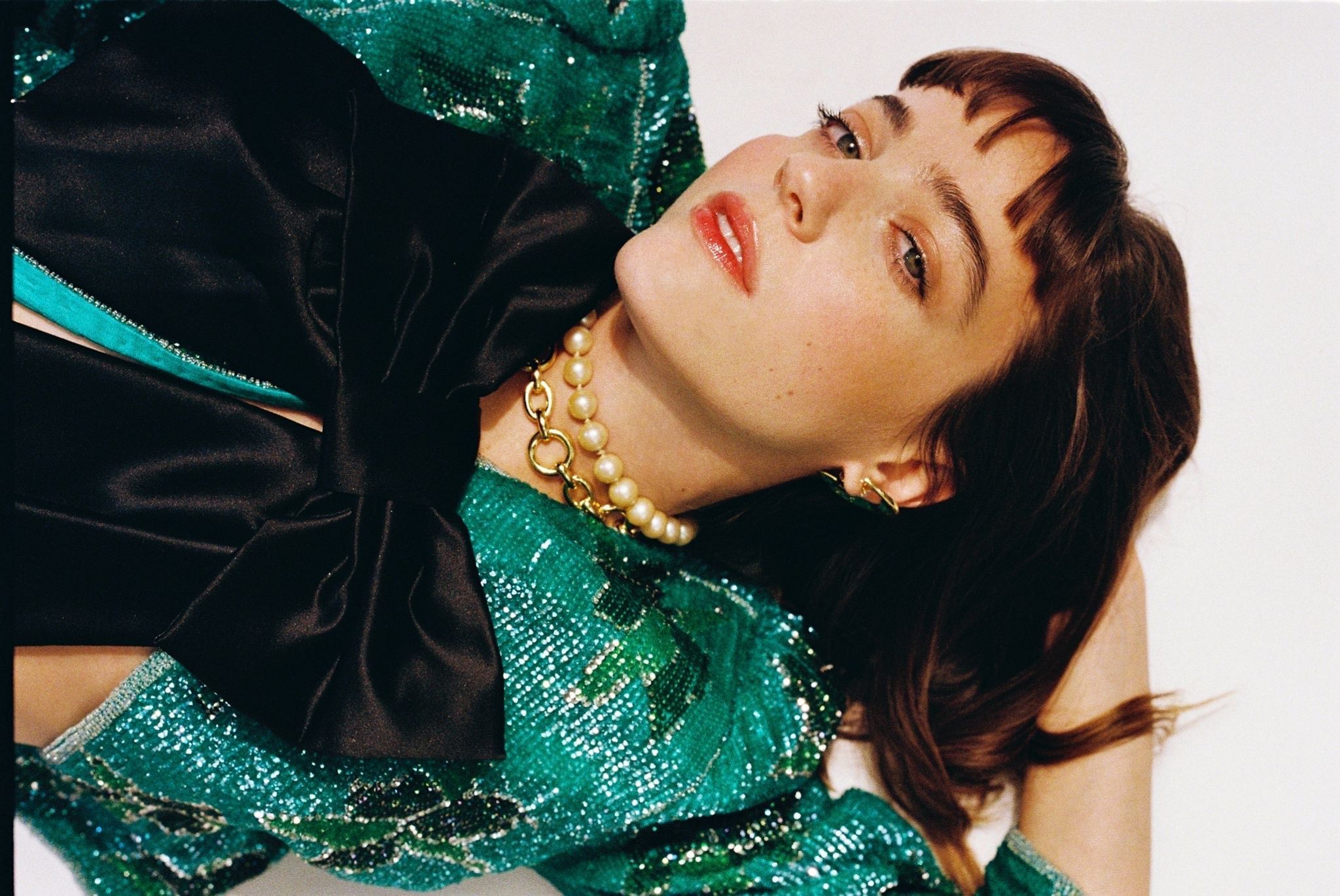It’s a mild and slightly gloomy day somewhere in the Surrey countryside and Nadia Parkes is seamlessly posing on top of a horse. “Anything for the shot, right?” she laughs, but that quote succinctly defines the career moves Parkes has been making since she first started acting half a decade ago. She’s not exactly a seasoned horseback rider, but if there’s an opportunity to do something different, she grabs at the chance with both hands.
When standing in a polo field at Hurtwood Park Polo Club watching Parkes move on top of a horse, it’s crazy to think where she was just a few hours ago — in a London studio appearing on This Morning sitting opposite Chloe Ayling, the person she mentally lived with for a period of her life and completely transformed for. For anyone absentmindedly flicking through the channels, the two couldn’t look more different. It’s Ayling’s story that has brought them together with Parkes entrusted to tell her tale on-screen — a role that will inevitably be one that critics and viewers alike should see as a major turning point for her career.
In 2017, model Chloe Ayling travelled to Milan believing she’d be attending a photoshoot. The then-20-year-old was kidnapped, injected with ketamine, and taken to a farmhouse near Turin. Her kidnappers — a pair of brothers — alleged they were part of a criminal organization that would sell Ayling to as a slave on the dark web if she didn’t give them a ransom. Six days later, one of the brothers returned her to the British consulate in Milan. They were arrested and she came back to England.
After being back on British soil relatively unharmed, anyone would assume that would be the best-case scenario for Ayling. Instead, she suffered through media scrutiny — tabloids and citizens alike would accuse her of making it up simply. Why? They deemed that her muted expression didn’t reflect a “real” victim, meaning that she simply didn’t seem traumatized enough for it to be true. Although the brothers eventually went to jail — the courts siding with Ayling — the backlash from the media is something that still happens today.
A week or so after taming the horses, Parkes meets with me for brunch to discuss Kidnapped and the lengths she went to tell Ayling’s story properly. The show takes viewers through every moment before, during, and after the abduction. Scenes with Ayling, who cared for her family, taking jobs to give her mother money are juxtaposed with scenes of her tied up on the floor. Parkes handles the pressure of playing a real-life person and acting out the harrowing details of what Ayling went through with deftness and empathy. Her portrayal of Ayling never feels like a caricature, likely because of the in-depth research and preparation Parkes did to play her with respect, dignity, and — most importantly — dignity. It’s a role that Parkes transformed for and, when chatting with her, it’s clear will stay with her for the rest of her career.
In conversation with 1883’s Kelsey Barnes, Nadia Parkes talks about the pressure of portraying a real-life person, working through misogyny on-screen in Kidnapped, her love for poetry and theatre, and more.
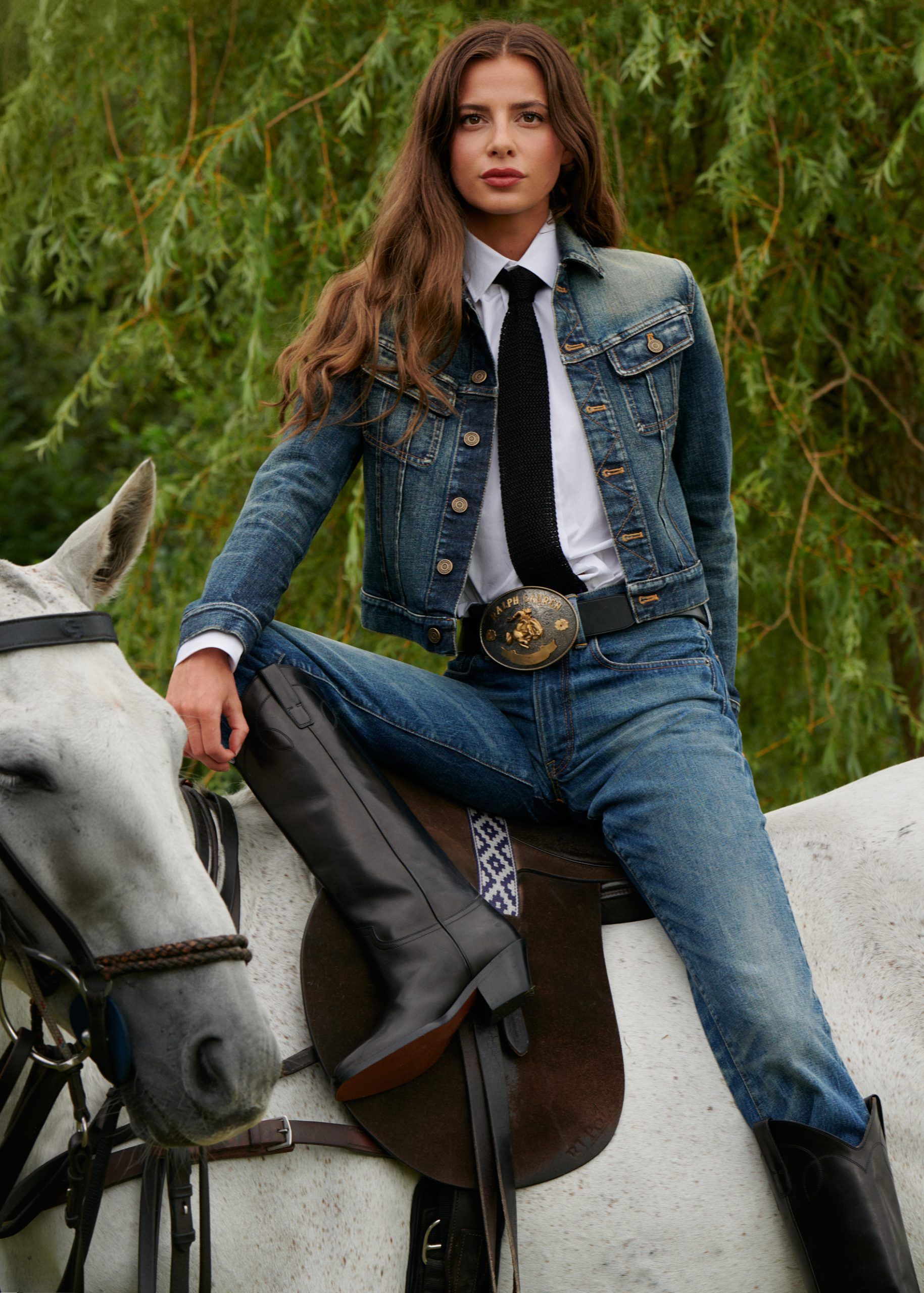
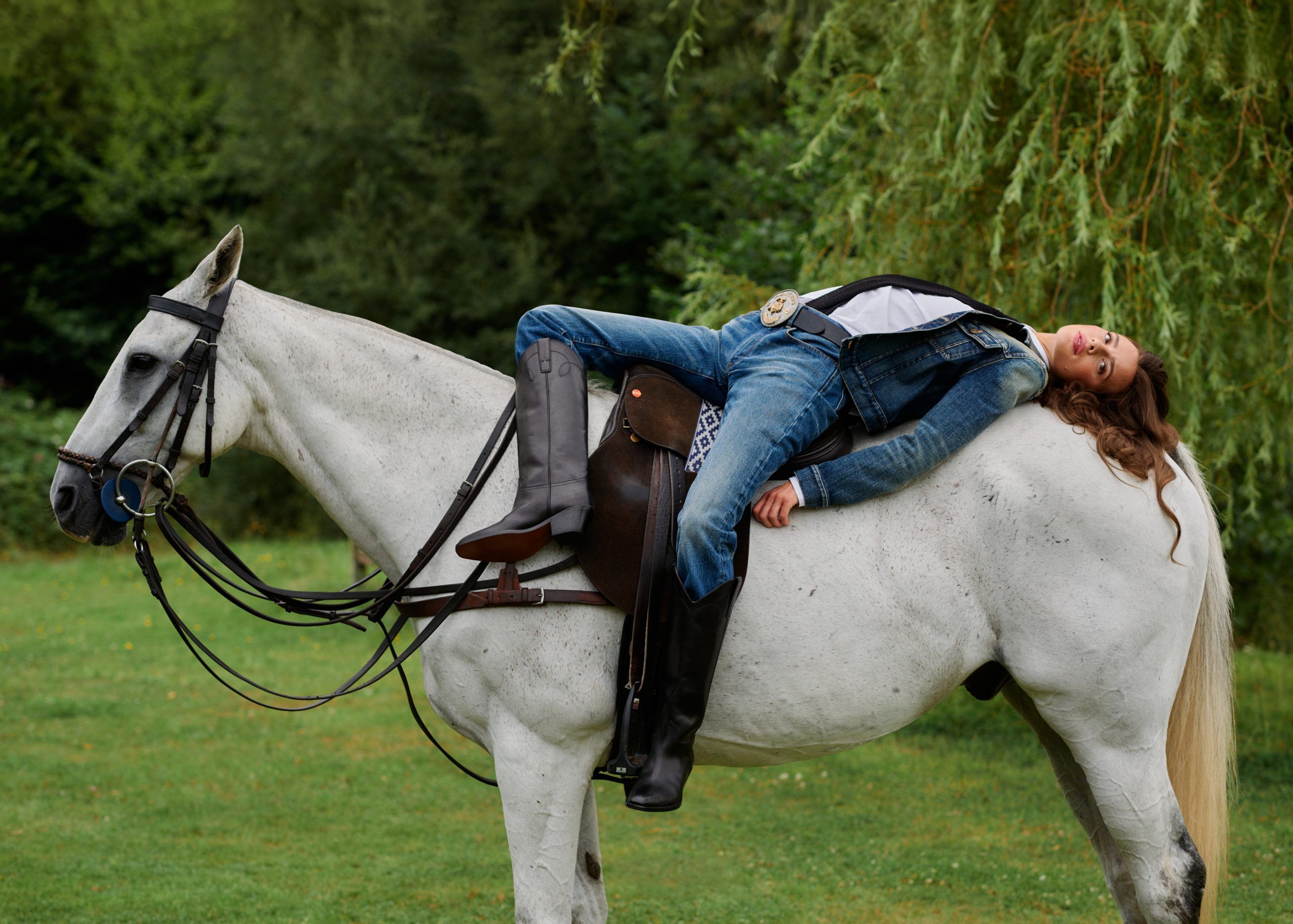
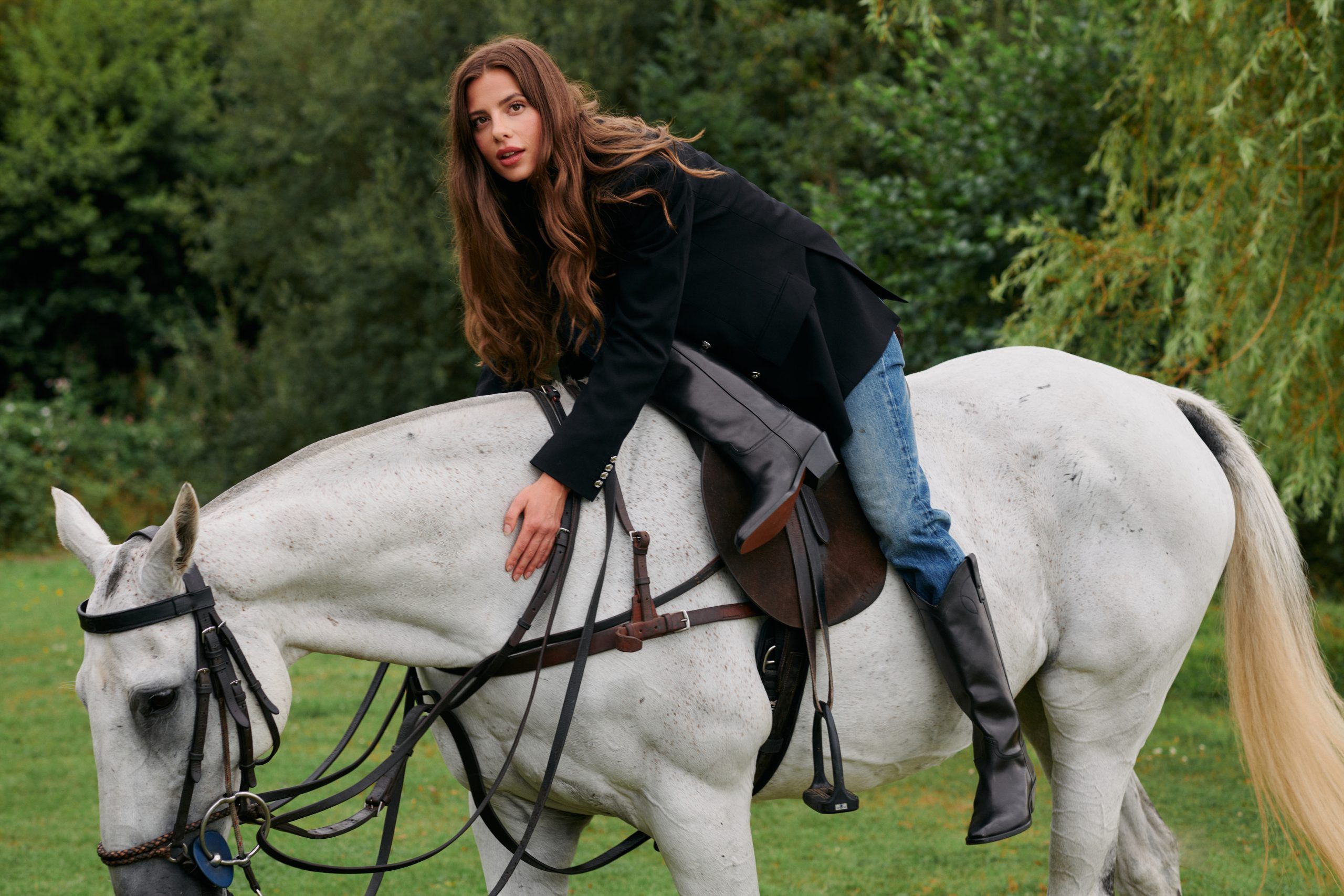
Nadia, we spoke a bit earlier about critiquing ourselves which reminded me of the podcast you did with Grace McGovern. In it, you talked about being self-critical and self-tapes. That was five years ago — how has your relationship with criticism changed?
Well, I’ve done a lot of work on myself to get to a certain place now but I still beat myself up all the time. I think one of the reasons why I work so hard and love what I do is because there is always something to improve. If you can find the right amount [of self-critique] it can be healthy, but I still sometimes let it [criticism] overtake me. The greatest artists I’ve ever come across and the people that I look up to have that in them. That’s almost why we’re artists — it feels like we’re doing a stereotype almost, sitting in this torture and self-loathing [laughs].
Speaking of tortured artists, you studied at LAMDA for four years which gave you a team of classmates around you. Did you feel like you needed the fundamentals of acting and the craft of it rather than just figuring it out yourself?
Yeah, I did. It was great. We all became such a tight family. Every single person I watched grow from our first day to our final showcase. It was amazing to see them coming into their own as actors and having real stamina. I really grieved the loss of that safety net. As you go to each job, you make a family through your cast and that’s one of the best parts of the job. You have the opportunity every few months to meet new people and you never know how important they’ll be when the job is done.
Was there some childhood fairytale or book that made you want to go into storytelling?
Oh my god, yes. It wasn’t necessarily a movie, but my grandmother was a storyteller. I remember growing up and my mum would go to work and my grandmother would watch us. We would just lay in bed, looking up at the ceiling, and she would tell us stories. She’d say, “Let’s come up with some characters, let’s tell a story.” She had this gorgeous Scottish accent but was also very Italian [laughs]. She just encouraged storytelling and using our imagination. By the end of the day, we’d have a complete story.
If it wasn’t for her coming up with these weird little poems out of nowhere while we were cooking together in the kitchen, I don’t think I’d be a storyteller myself. She passed away, but I feel her presence in my life. Whenever I get a job, I always say a thank you or light a candle for her because I know she has something to do with it. I always remember her saying, “That one’s got to be on the stage.”
That’s so moving! And now every role you get, you can remember she’s the one who inspired you to pursue this career. When you booked Kidnapped, what did you already know about the story? I had no clue about her, but that might be because I was in Toronto and it probably didn’t pick up much there.
I vaguely remember it. I never took the time to watch the interviews, I just knew it was happening. I got the script after getting some bad news about the cancellation of a show I cared about. It was a moment when I realized that I was an artist. Sometimes you go through this industry and you feel like things are going well, and then something like that [a cancellation] happens and it makes you completely distraught. It made me a bit disheartened by the industry for some time. I had to take a step back because I realized I needed to do some work on myself. I had too many expectations and too many narratives about what it meant about me. Looking back now, when that show got cancelled, I was kind of given a clean slate. I had an opportunity to figure out who I am as a person and as an artist.
I ended up submitting a self-tape for Kidnapped after that. Sometimes a self-tape is actually a check-in with how I feel about myself right now and whether or not I believe in myself. I was encouraged to submit a tape for it and someone said, “This can be the last tape you do for six months, but just do it and see what happens.” That was my plan — it was going to be the last tape I submitted, a week after that cancellation. It ended up being Kidnapped.
Wow, so you attempting to step back actually just presented you with a new opportunity.
Yeah, that’s the spirituality of it. When you’re so meant for something, nothing will take you away from it.
I do believe the universe puts things in our path when we need it.
It was almost like someone was saying, “No no, you’re supposed to be acting.”
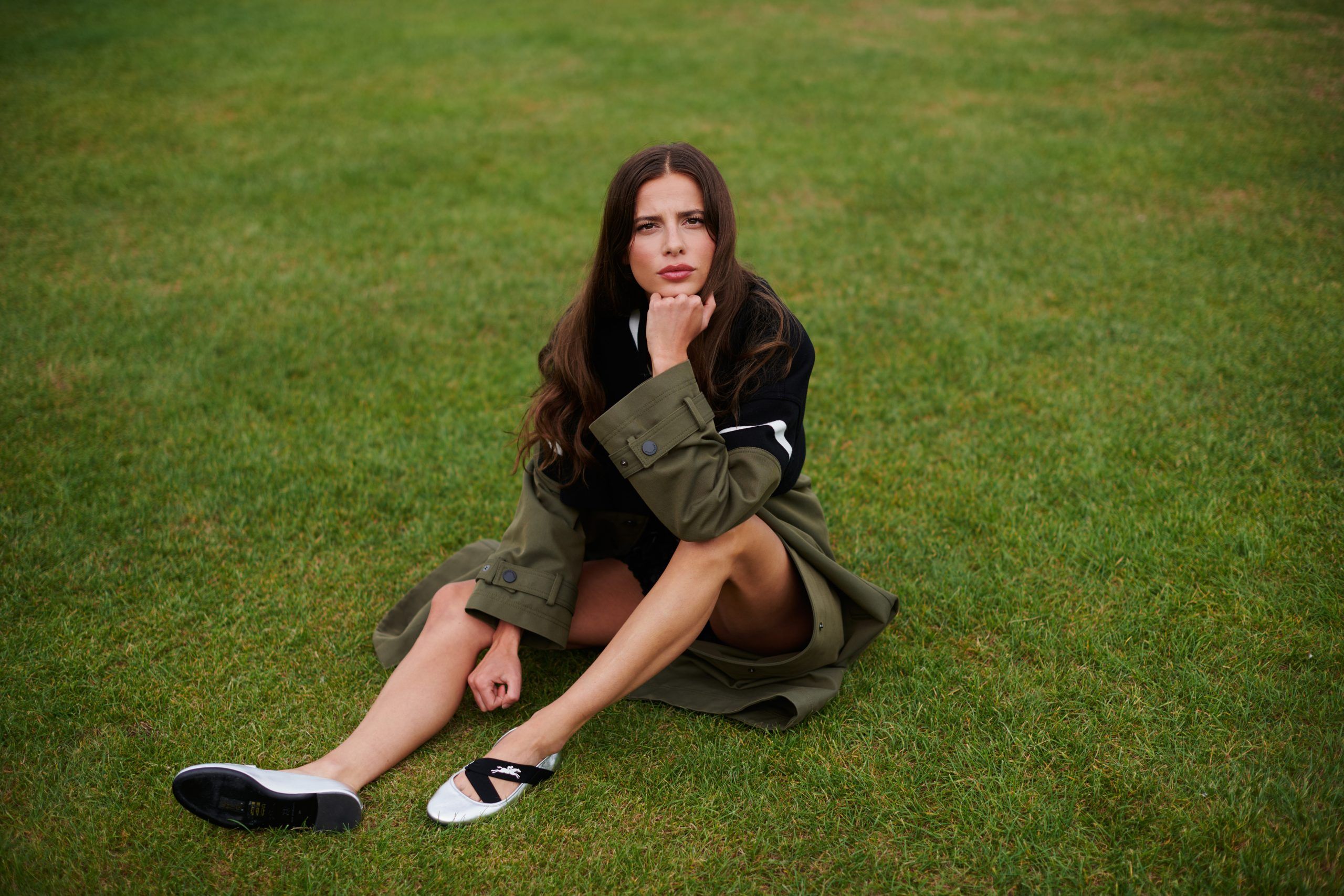
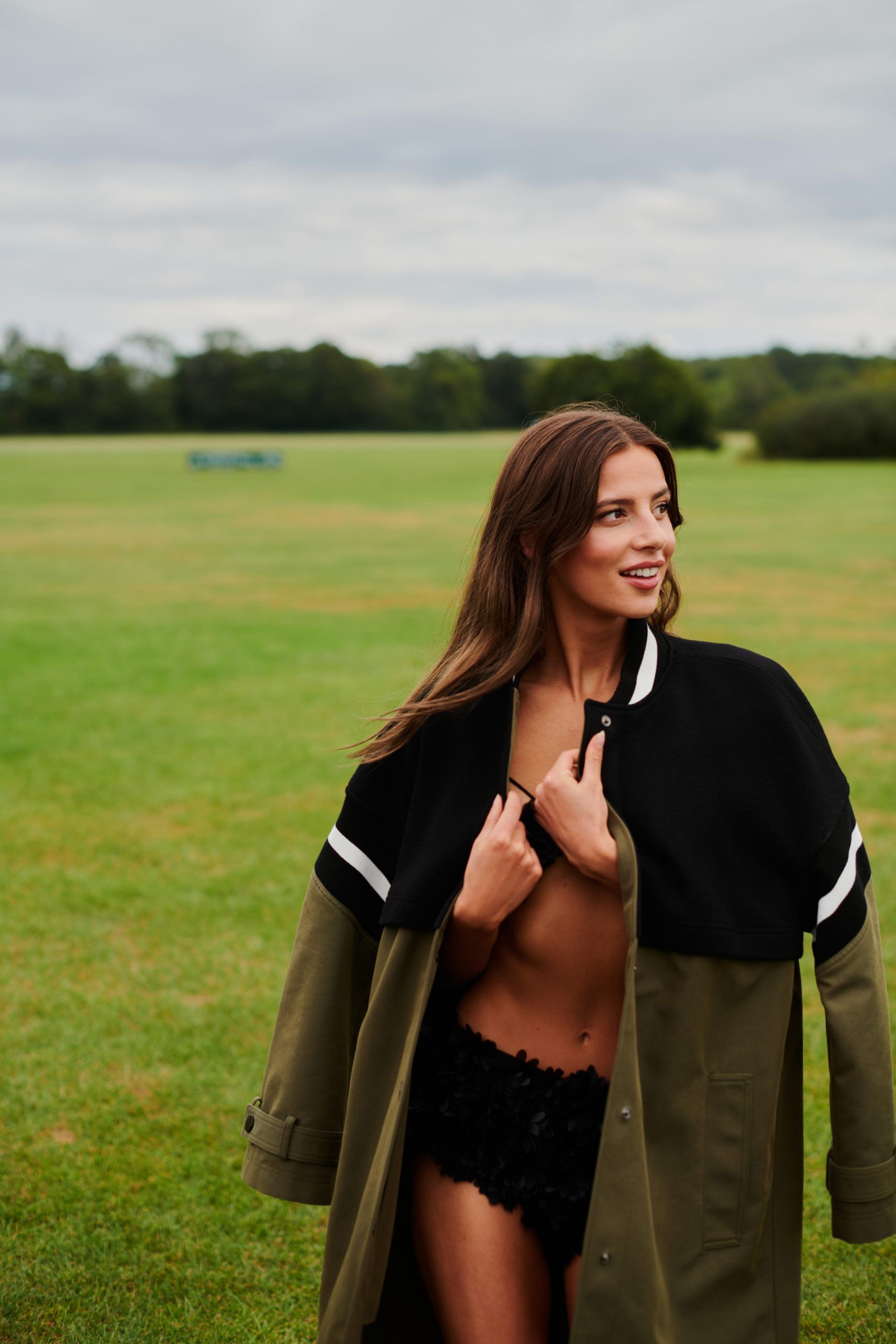
Getting into the mindset of Chloe and embracing her physicalities must’ve been challenging because of how different you are. How did that process inform your portrayal of her?
It was a real moment when I got the job and it wasn’t until I realized the responsibility — not only of transforming into a real person — but the pressure of knowing that I’ll meet her as part of the process, too. I remember my heart fell out of my chest when I first met her because I felt completely starstruck after watching so many interviews during preparation.
How far into filming did you meet her?
It was during the rehearsal process, which helped a lot. She was so amazing and willing to give her time so that I could learn as much as possible. I get really excited about the idea of transformation. What I really want out of my career is for people to look at me in different projects and not feel like it’s the same person. I want the self to disappear. Other actors bring so much of themselves to their roles, and they’re phenomenal. For me, the excitement and joy come from trying to go as far from myself as possible. It was a whole process—I watched her, I listened to her. But it wasn’t until the last month of filming that something clicked, and I felt like I could truly embody her energy. I always knew transformation would be part of my career, but I didn’t expect it to happen this early on. I’m so grateful. In this industry, you often earn your stride, and then, ten years later, someone finally trusts you with a role that shows your full range.
Often, we see actors in the same roles year after year because that’s what they get offered and in such a fickle industry you feel inclined to say yes.
Exactly. So, the fact that I’m early in my career and already getting these opportunities feels like an absolute blessing.
I read that you really got into the nitty gritty of Chloe, asking her really personal questions like what her favourite biscuits are. Why was that so important to you?
Yes, I did. I don’t really have a set process for each role or project, but I do find that I often get into character through tiny details. I remember being fixated on small habits and preferences because they tell me so much about a person.
Characteristics through tiny details because the tiny things make up the big aspects of a person.
Exactly. With Chloe, for example, I wanted to know everything about her, from the big events in her life to the small, personal details. I could look up every interview, but to truly understand how she felt in those moments, I needed to immerse myself fully in her world. Only then could I authentically bring her to life. For example, it was important for me to know about her relationships, like with her mother or her best friend, because that’s how you really get to know someone. I like to understand my character in that intimate way.
I love that approach. If I were an actress, I’d do the same. I’m obsessed with knowing everything about people, especially those I’m close to. I want to know every little detail.
Exactly. It’s the really random, silly, and seemingly insignificant things that matter. So, I did ask her about her favourite biscuits — those little details helped me build a more complete picture of her character.
Misogyny in the show is depicted both explicitly and subtly, like when Chloe gets to Milan and has to shrug off catcalls or deal with the police and the general public not believing her. Specifically, the image of the advert that showed Chloe on the black market makes me physically ill. Seeing that must have been very difficult for you.
It was horrible. And then recreating it…
Recreating it must have been tough.
Really tough. We had to take breaks. It was a real challenge to portray that without it being overwhelming but I did it.
That’s what I find interesting. I was looking at comments on Chloe’s Instagram yesterday, and some people still don’t believe her. Why would anyone willingly fake something like that? How was it exploring the theme of misogyny in this way?
What’s interesting about Chloe’s story is that she mentioned a lot of the negative reactions came from other women. It’s disheartening, and it shows that there’s still progress to be made in uplifting each other. That’s why I feel so passionately about this story. I’ve had messages from women thanking me for telling them because they’ve been affected too. It’s part of why I do this job.
It’s one thing to act in a role, but it’s different when the role impacts people deeply. Not to say that other roles don’t matter, but this one addresses real, harrowing experiences that many women face, like toxic relationships.
Exactly. Even small moments, like when she shouts at him, and then makes herself small afterward, show the daily struggle to just survive.
Making herself small just to live another day—it’s heartbreaking.
Misogyny is so multi-layered. It includes physical violence, being drugged, and even how authorities treat you.
One of the saddest scenes for me is when she’s being questioned by the police and she turns to the woman helping her and asks, “Are they angry?” It’s so sad.
How many times have we assumed someone’s angry just because of their demeanour?
Exactly. These are people meant to help, and they should believe her right away. She was in Milan for a month!
I can’t believe it either. From start to finish, the media added to her struggle. Not only did she have to deal with the trauma, but she also had to defend herself publicly. She had to speak about her experience openly, hoping it would be informative and inspirational. She had to defend herself on live TV. Of course, she was telling the truth. She seemed unemotional because she was telling the truth, not trying to convince anyone.
The idea of the “perfect victim” comes into play because she wasn’t hysterically crying on Piers Morgan’s couch, people doubted her. There’s that quote where she asks if they’d have the same opinion if she wasn’t a model.
Especially that interview. On top of everything, we struggled to remember what it was like at 20. I was running around drama school pretending to be a big cat! I was preparing for roles in the safest bubble ever. If that had happened to me, I wouldn’t have been able to hold myself together. Her bravery and resilience are incredible.
Definitely. I love the dual timelines in the show, showing her life after and during the events, especially the parts with her mom when she’s giving her money. It highlights that she was trying to provide for her family, showing another side of her character. Regardless, it shouldn’t have happened.
There’s a moment in the show where she says something like, “Let them think what they want. The trial will prove it all,” which I think was interesting.
She just has such a fire to her. Was that really obvious when you first met her?
Yeah, she has a bravery that kind of comes off her in waves. She’s got a bit of a fire. I love chatting with her because she’s really direct. You can tell there’s no BS. I’m more fluffy with my words, but she’s so refreshing and straightforward. She’ll answer directly and ask questions back just as directly. I really wanted to get that across.
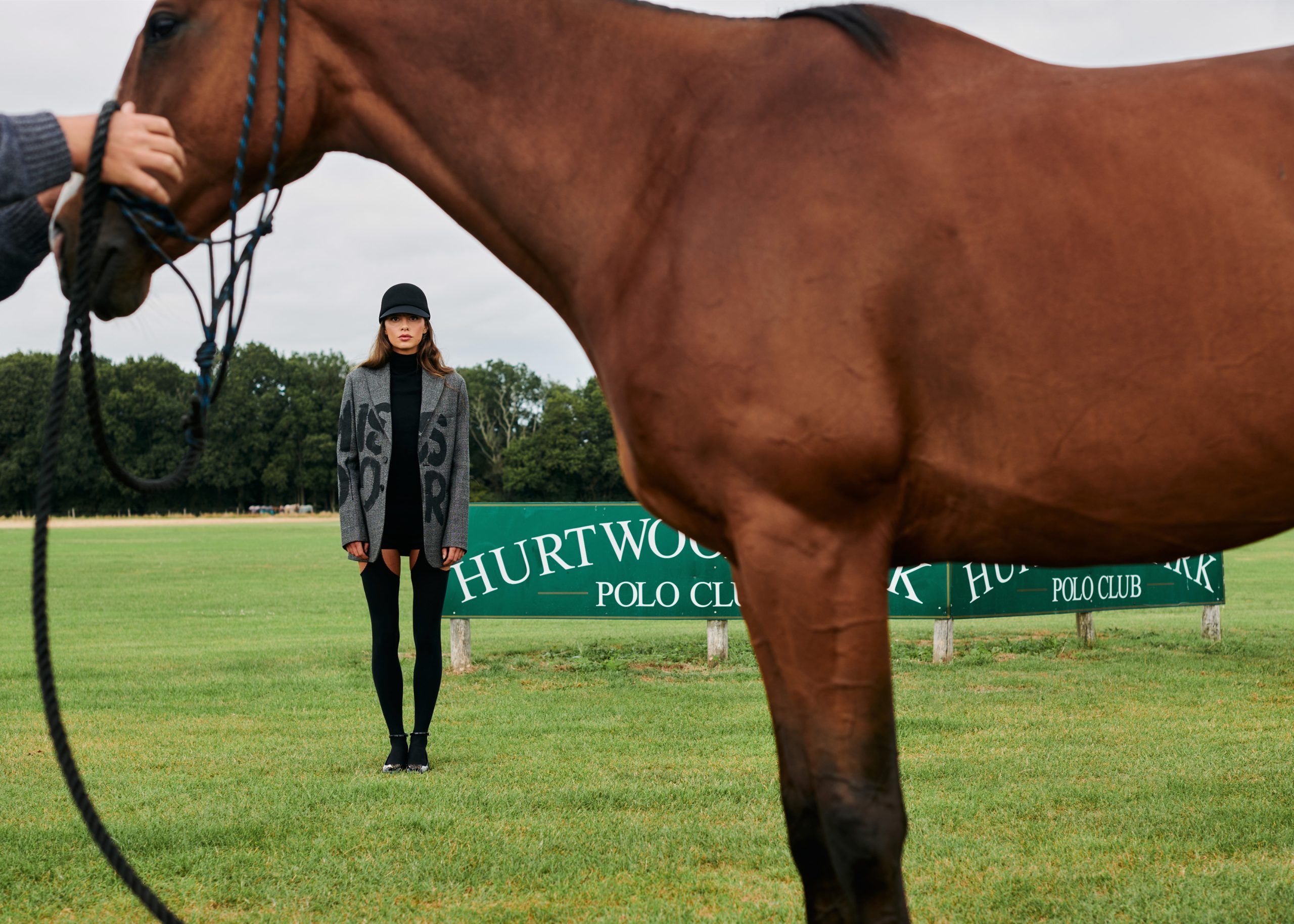
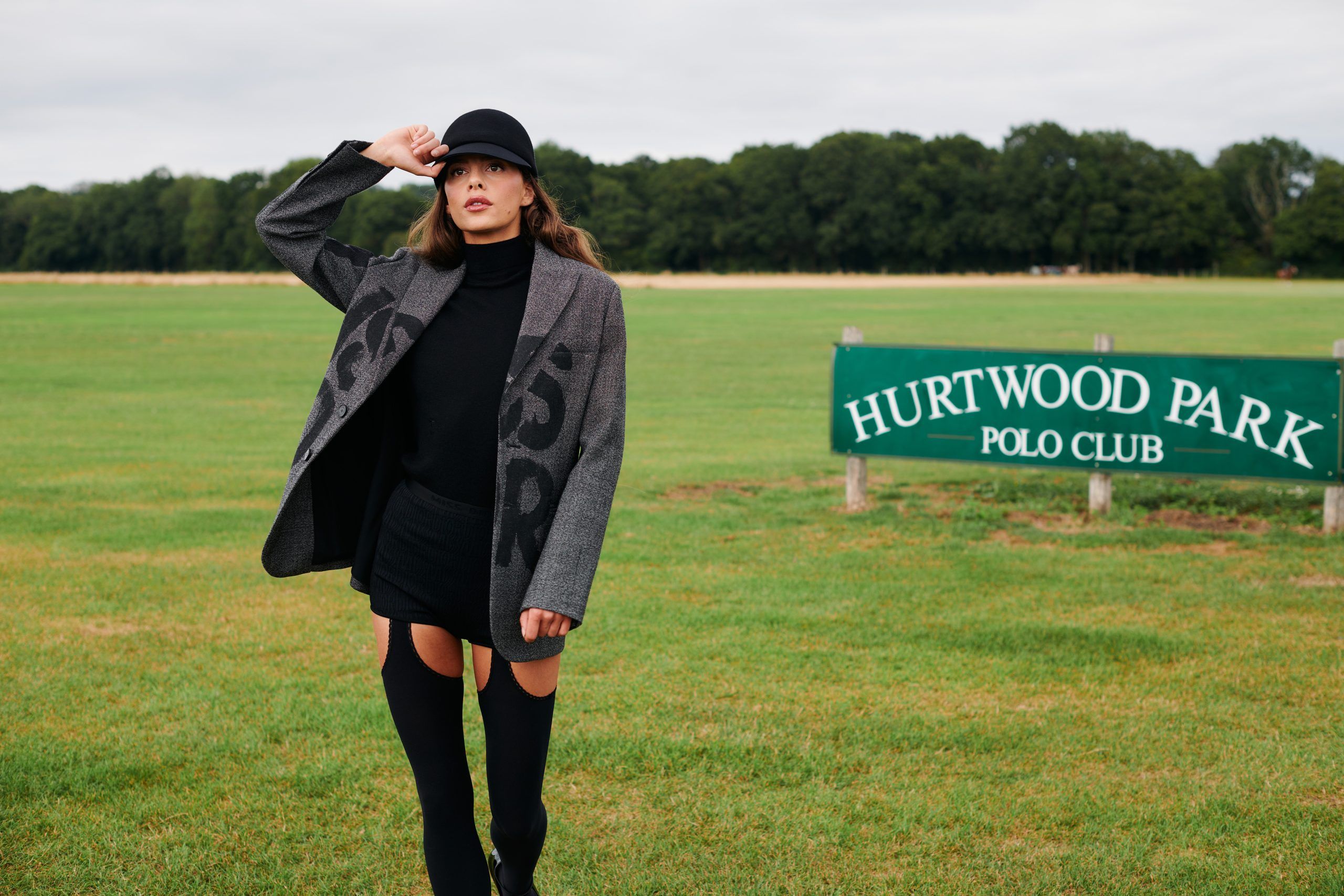
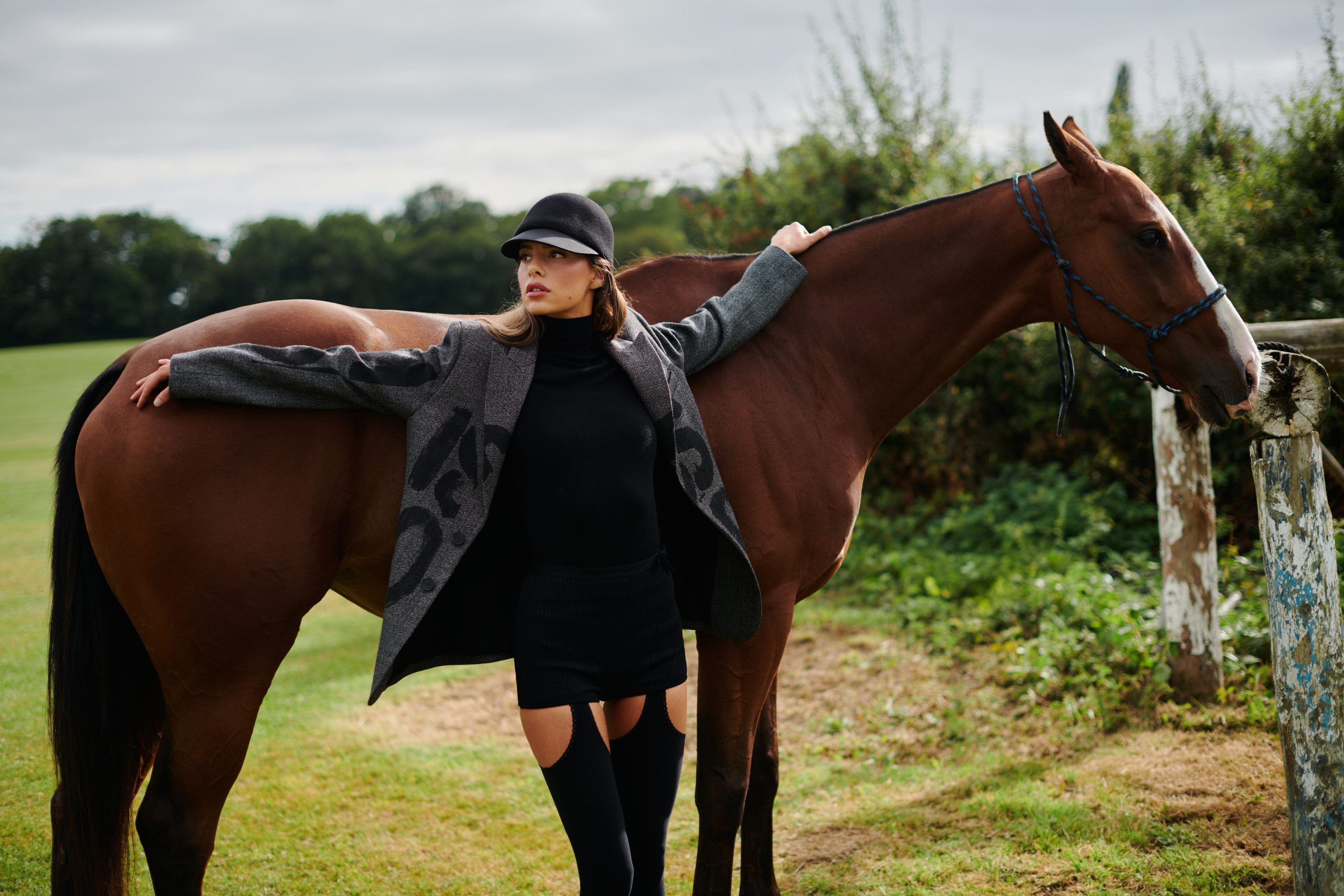
On my second viewing, I noticed that when he [the kidnapper] lies and says they concocted the whole thing together, she says, “It’s all a lie. They’re going to believe me, right?” You begin to see her confidence waver.
I don’t know how you watched it twice [laughs]. I watched it once, then rewatched certain parts. You notice more details on the second viewing.
I noticed the detail of her hanging up the orange dress among all the muted colours. It was so good. Did you pick up on that right away?
Yeah, the level of detail that went into telling the story was incredible. It was a collaborative effort with the directors. They involved me in decisions about the character’s wardrobe and other aspects, which are usually left to department heads. I felt really grateful to be part of those conversations. It wasn’t about having authority, but about being part of the process. It made a big difference.
Being included in those conversations is significant, especially as a woman in acting. Usually, it’s the men who speak up.
Exactly, and carrying this story was a big responsibility. Feeling valued and involved was crucial. Otherwise, you feel like you’re just doing your job, but being asked to go to these intense emotional places. I was very supported, which helped a lot.
How did you prepare for those emotional scenes, like when she goes through the house where she was captive afterwards to show the police? You looked so sunken and defeated.
That scene where she goes back, we recreated it exactly from the real video. She was literally revisiting the place, and it was very hard. I was so supported by everyone, but it was very intense. Chloe’s emotions are always there, just beneath the surface, but she keeps them locked in. On set, I would often choke up, and I’d have to hold it back because Chloe is always holding it in. During filming, I had a severe pain in my chest, which disappeared once we finished and I could let my emotions flow again. Chloe is so tightly wound, and that had a physical impact on me. She says that she doesn’t like crying and she’s not very emotional. I’ve never had a job where after they shout “cut,” you need to let it all out. It was really, really intense.
Did you connect the physical pain to the emotional toll right away, or did it take some time?
No, I realized it pretty quickly because of the emotional places I was going to every day. Your body doesn’t know it’s not real but your mind does. So, all the tears and emotions, even if you’re not showing them outwardly, are happening internally. For instance, in those panic attack scenes, my body was genuinely reacting as if I was having a real panic attack. Your mind can play tricks on you like that. You have to be very mindful and purposely let those emotions go. Otherwise, they can get stuck in your body and manifest in ways like back pain.
How did you unwind after a day as Chloe? How did you manage to shake it off?
Honestly, I was desperate for a break. When I finally got a week off, I felt like I could truly unwind. During filming, I developed a bit of a routine that helped, though it wasn’t until after the job that I fully let it all go and felt it leave my system. When you’re working late and then starting early the next day, you can’t completely unwind. But I did find some things that helped: spraying my favourite perfume, listening to music that made me feel good, and having a nice dinner. Those little things made a big difference. Also, the people on that job were phenomenal. We were dealing with such a harrowing subject, but it felt like the universe put together the best humans you’ll ever meet. There was no room for bad energy on set. We all loved being there and supported each other. After the seriousness of the scenes, we’d come together, have a laugh, and it made all the difference.
Chloe also said that the trauma that came from the media was worse than the actual kidnapping which I thought was chilling.
That’s some severe media trauma. We had a strong paparazzi presence during filming. There were paps hiding behind vans, on the base location, trying to catch me coming out of my trailer. I was like, hang on, I’m not famous. It was just the Chloe association. There was a day that was so meta — we were filming a scene with an actor playing a paparazzi, and there were two real paparazzi who followed me from Greggs. They captured me the whole day. When they shouted cut, the pretend paps stopped shooting me but the real paparazzi were still snapping away. It was the most meta thing ever. It was a gift for my acting. Going in and out of the scene was surreal. It enhanced the story because it gave me a small insight into her world. They were after what I looked like, not after me, which felt different.
Something ironic was when she didn’t want the story to get out. She didn’t want people to know she was captive. Then the media said she did it for attention.
What a mad thing to go through. You don’t know what to do. Her house was hounded with people asking for a statement. She went out, made a statement, and smiled because she was safe, happy to be home, reunited with her mum. She was probably nervous too. She held herself together the whole time.
You can tell she was nervous and uncomfortable.
Exactly, and I’m so glad you understand that. If I was in those interviews and they were doubting me, I would not only ugly cry, but I would scream. The media this time around is different. I remember thinking, it’s not that long ago, 2017, but so much has changed. I was really struck by that.
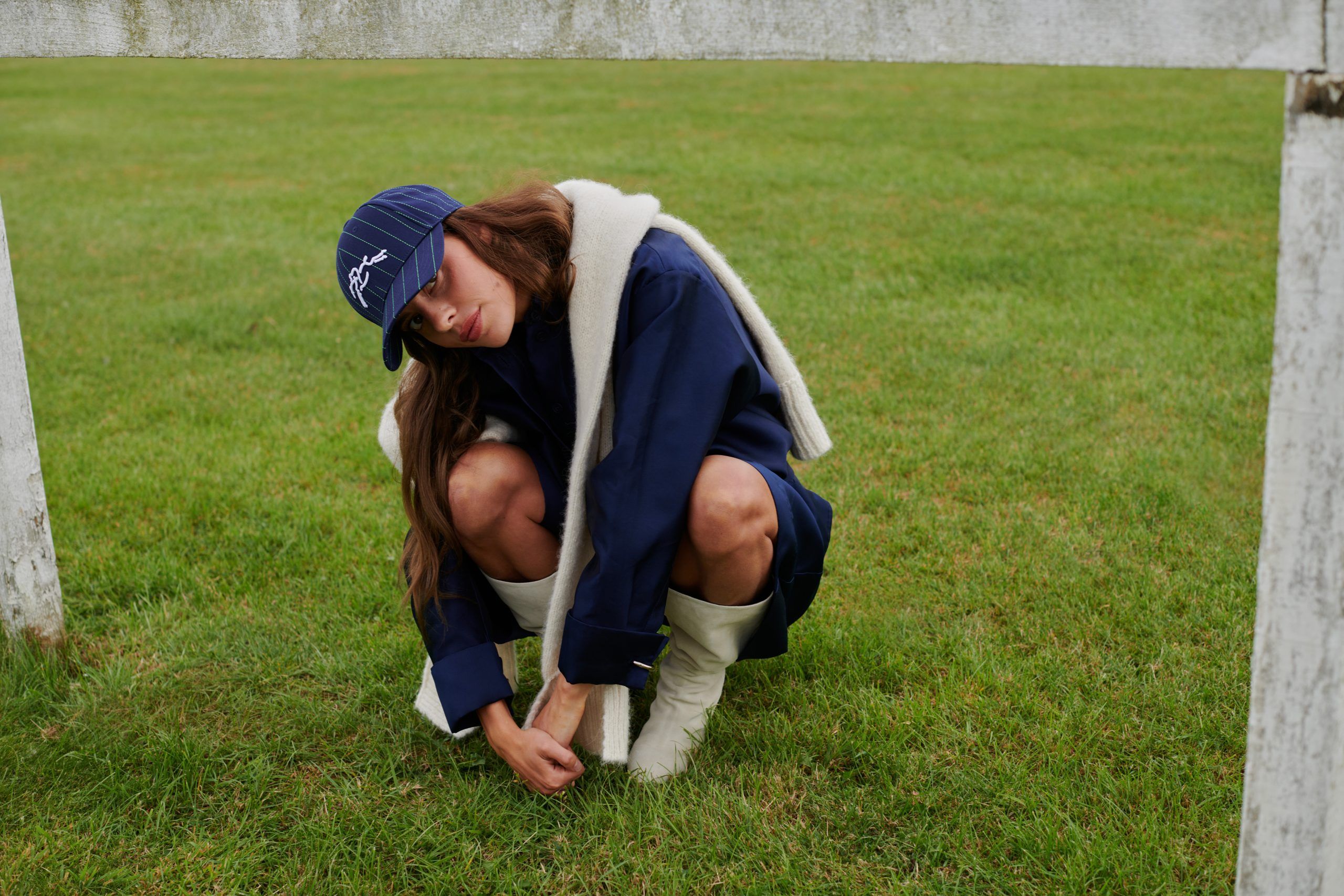
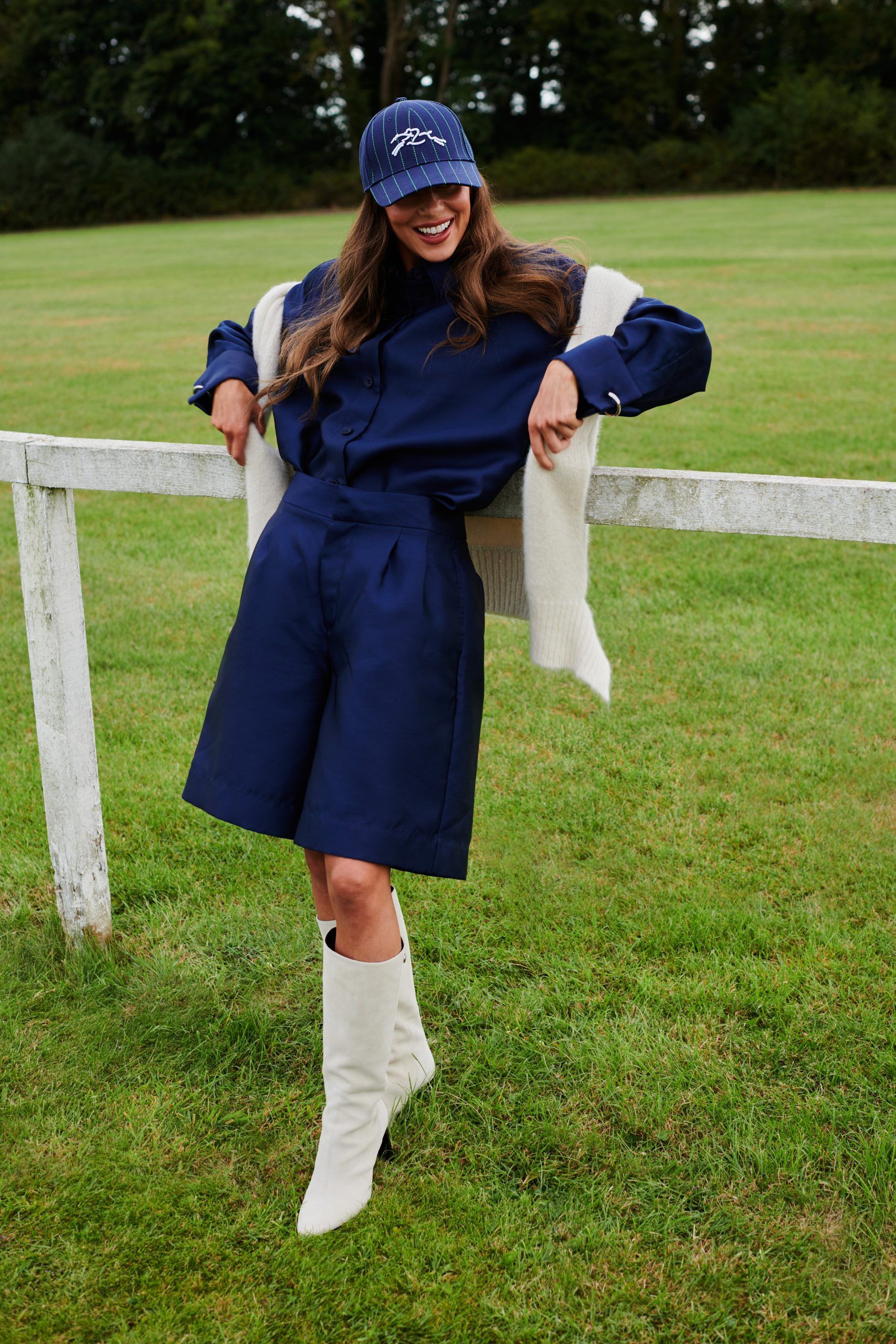
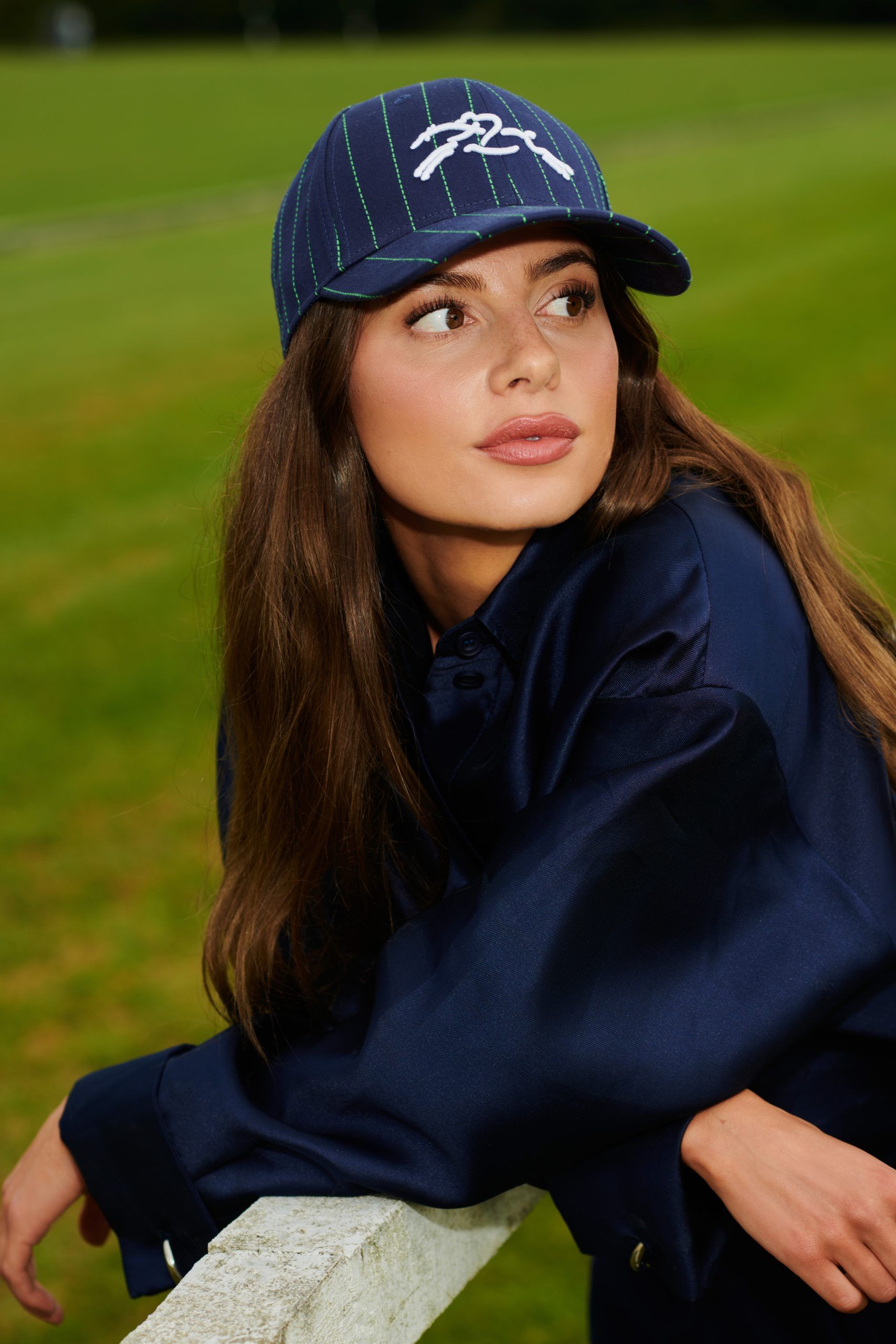
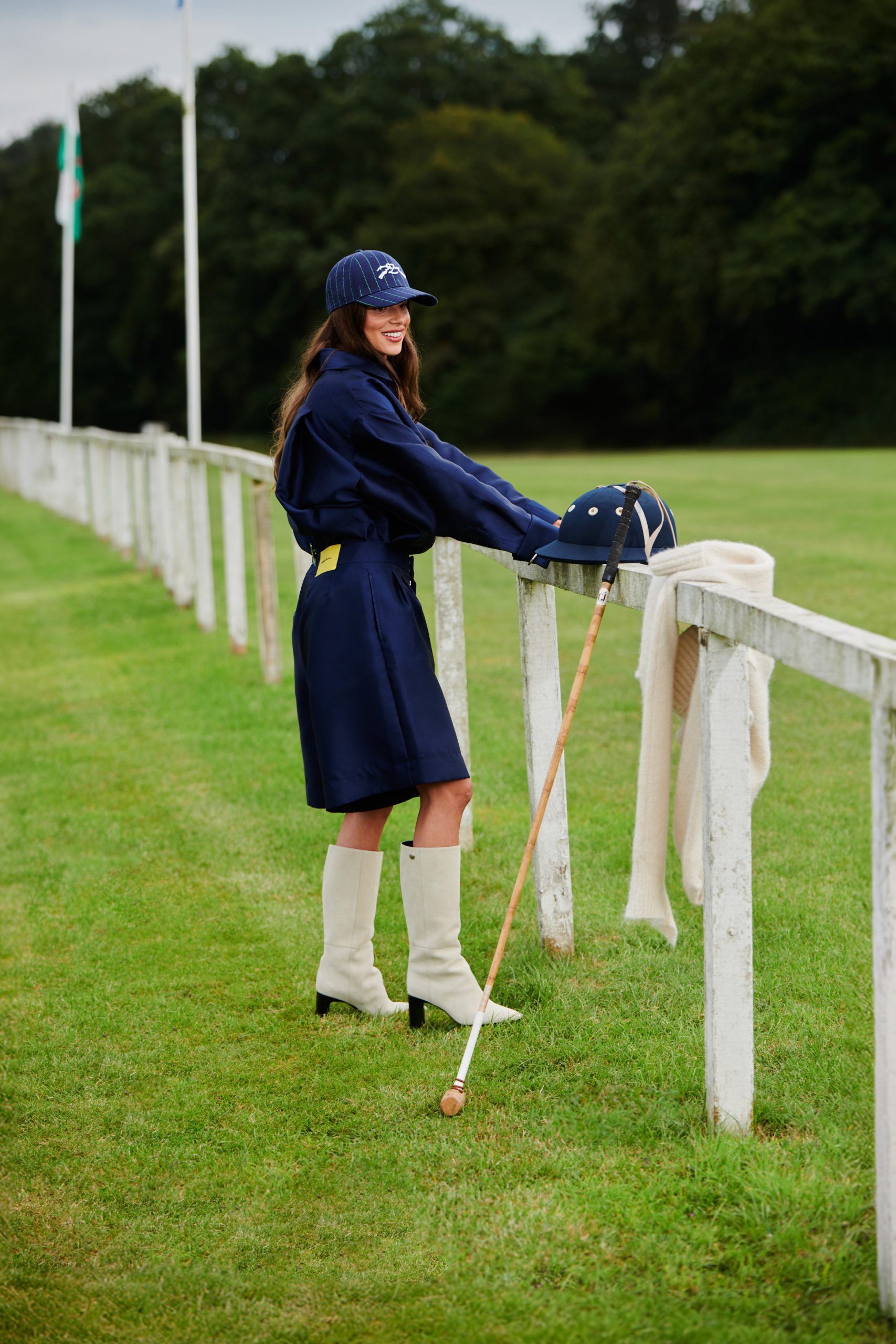
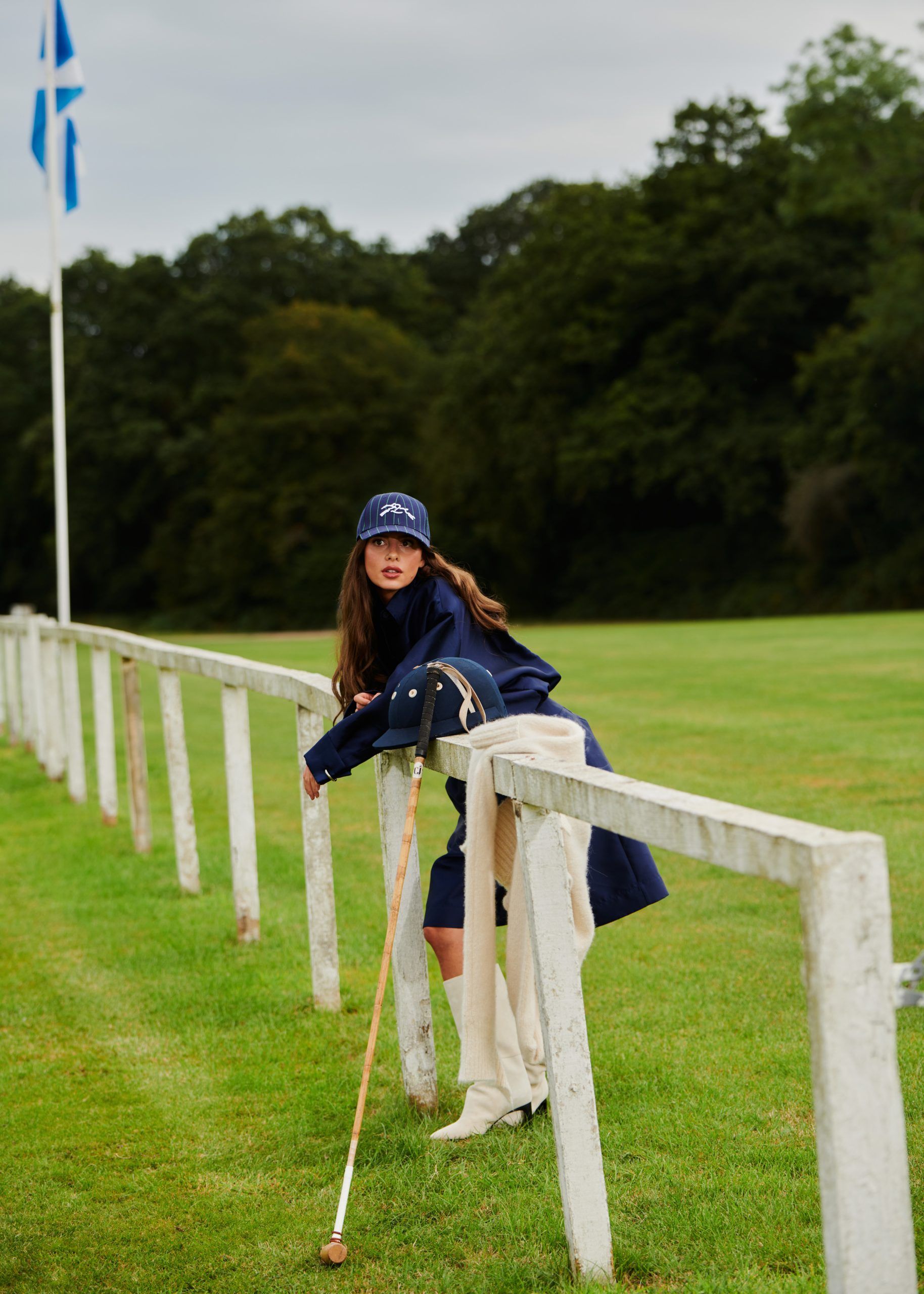
I really want to talk to you about poetry, which is a different type of vulnerability. When you’re playing a character, you can let loose and be vulnerable through that character. But poetry is a whole other level because it’s your own. How long have you been writing poetry?
Years and years [laughs].
I know you started sharing them on Instagram. Had you been sharing them before that?
To be honest, no, I’ve never really shared them, let alone read them out loud [laughs]. Now I’ve decided I’m going to do something with them, but it’s still daunting. It’s all well and good when your poems are about something lovely. But I have poems that are deeply personal, reflecting specific times of struggle or fear. It feels much more vulnerable than playing a character. A film or a role is a separate entity, but poetry is a direct outpouring from your soul.
Right, it’s coming from you.
Yes, it’s one of the greatest forms of expression. I think poetry is mixed with healing. If you don’t understand poetry at some point in your life, something will eventually happen that unlocks it for you. Then it becomes yours forever, and you never unlearn that connection.
Is there a poem or poet that resonates with you?
I love Mary Oliver; her work is so beautiful. Her poems really resonate with me.
I was reading through a poetry book the other day, and there was one that made me laugh based on our earlier conversation about relationships. It was by Wendy Cope.
Was it called “Bloody Men”? I love that one [laughs].
Yes! It’s so good. You were shortlisted for Best Newcomer at the awards for The House Party. I’m so mad I didn’t get to see that.
Oh, it was such a magical experience. Theatre is the purest form of storytelling. There’s really nothing quite like being on stage. That was my first play.
The transition from performing to a camera to performing in front of an audience that’s right there in front of you—do you feel like you need to play a little larger than life?
I think what was so brilliant, and I can’t speak for every play I’ll do moving forward, but what was so brilliant about this play was that it was massive in scope, so big in many ways, so Greek. And then other parts were so small and intimate. We ended up in Greek tragedy because basically, it was an hour and a half with two characters at a kitchen island. Isn’t that quite true about life? You’re in these intimate moments that lead to these big, life-changing events. The space we performed in allowed us to keep our performances nuanced. I genuinely didn’t feel like the acting I was doing was any different than what I do on camera. I think truth is truth, and to your core, you have to be in it and behave in it.
What about the muscle memory aspect of performing the same thing on stage? What was that like?
Amazing. The fact that you can come back to the same thing every night and tweak and change your performance is just so rewarding. On-screen, you’re not your own editor, but on the stage, you get to edit your own performance. It’s fascinating because it doesn’t feel like me. It feels like you’re a vessel for the story, and you’re telling it from the divine. The character you portray changes slightly every night based on the day’s experiences or this conversation.
The Julie that went out there every night was different. I remember standing in the wings right before the beginner’s call, thinking, “I can’t wait to see who Julie is today,” because I knew she’d be different from yesterday, influenced by how I felt, who was in the audience, or if I got enough sleep. The Julie that came out changed just like normal humans do.
Like how you’re feeling that day or who’s in the audience, how everybody else in the cast is feeling. Their characters also change based on how they’re feeling.
Yes, exactly. It was really living alongside Julie. It feels like the same character each night but with different nuances. It’s the same person but not the exact same character. As long as you’re completely present, your performance will always shift and change. I really love Julie. I feel for her so much. She’s so hurt and in so much pain, and I’ll always make excuses for her.
I read a bit of the plot. She’s going through a breakup, right?
Yeah, she’s just been broken up with. Her dad rejected her on her 18th birthday, and her best friends are making plans to go to Thailand for a gap year together. She’s hosting this 18th birthday party, and her dad’s rejection weighs heavily on her. She overhears her best friend and her boyfriend basically calling her a slut, and she finds out that her best friend has no intention of going to Thailand. At that point, because of who she is and the rejection, pain, and shame she carries, she decides to be destructive. She does everything she can to not let her friend hurt the next one, so she sleeps with her best friend’s boyfriend.
In a moment of vulnerability, after she sleeps with her best friend’s boyfriend, she declares to him that her mum killed herself. She says the rest of the bar is being kind to her, but she ran away and didn’t go see her mum, which she regrets deeply. Julie’s journey was heavy to perform every day. I remember standing in the wings, and one of my main prayers before I went on was like, “let me carry Julie’s pain for her.” I almost saw it as doing her a service by carrying her pain, taking the weight off her shoulders. By going out there each night and telling her story, I felt like I was looking after her. I remember saying that to my friend, who pointed out that Julie didn’t do a very good job looking after herself, trying to kill herself in the end.
She even stabbed her dog, which was clever writing, but the version of Julie I know felt like she had a responsibility to make sense of Chloe, to explain why she does what she does and why she acts the way she does. The biggest compliment I received after the house party scene was when people said they just wanted to hug Julie despite all the awful things she did. That’s when I knew I had done my job, and I had done justice to Julie. I think of her as a real person who needs looking after.
I interviewed Louis McCartney a few months ago and I said I wanted to give his character a hug, and he poked fun at me and said “you know he’s not real.” But that’s definitely the thing about characters — you just want to comfort them and cradle them, tell them it’s all going to be okay. I love that you feel that way too.
They’re so real to me! When Half Bad didn’t get picked up for season two, my boyfriend thought I was absolutely mental. I couldn’t stop crying, and he was like, “What the fuck is wrong with you?” And I was like, “I don’t know where Annalise is right now, because I’m not with her.” We didn’t close that story, and I felt responsible for looking after her every day. Where is she now? Just running around in some woods somewhere, killing more people? It was hard for me to accept.
I love that you take so much care with that. It’s admirable.
I deeply care about it. If I’m okay at my job, it’s because I take every single character seriously. It’s like a massive union of me and the character. I think I’d struggle if I just did bits here and there without feeling that connection. I absolutely become kindred with my characters and I completely lose myself in them.
Do you want to do more theatre work?
I would do a musical. I want to do a musical where there’s a lot of creativity involved, not just a long-running one where you do the exact same thing every night. I’d want to work on something new, maybe create a new role, or be part of a new adaptation. I think I’ll be coming back to do a play that’s like that.
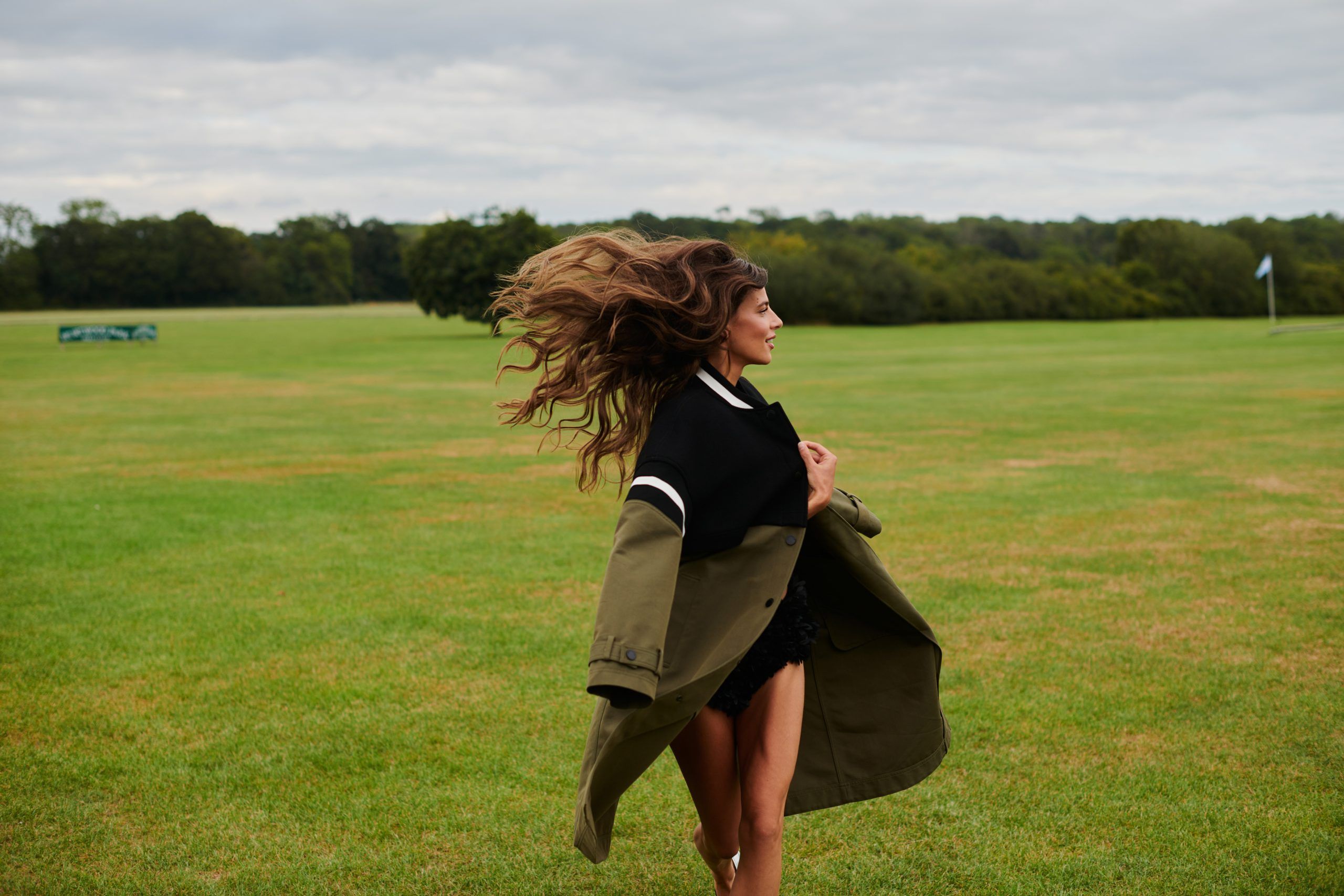
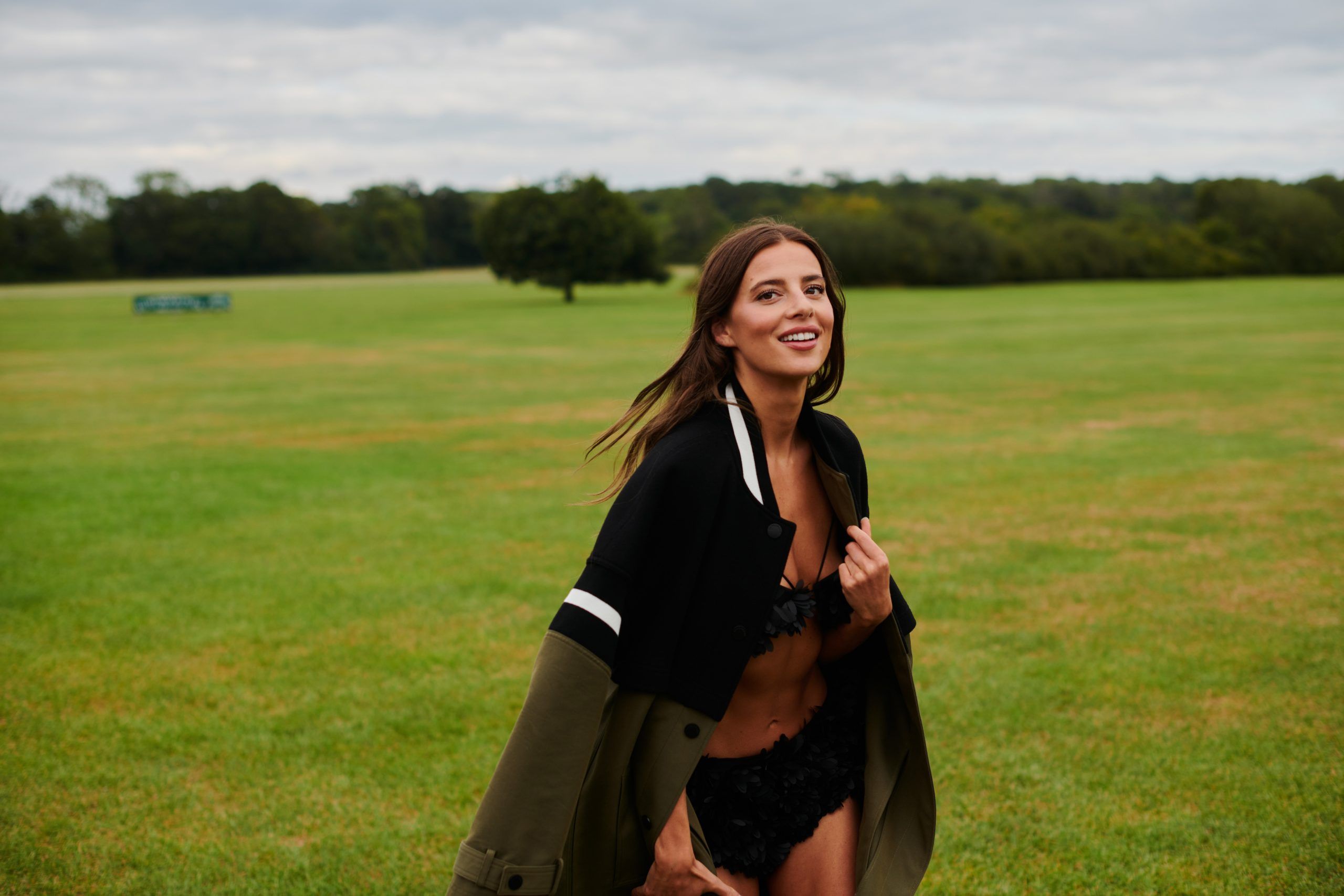
Has there been a specific book, album, movie, or TV show as of late that you’ve really enjoyed?
Yes! Recently, I watched This is England. I’ve watched bits of the series before, but with everything that’s been going on and what the film is about, I decided to watch the series. It’s amazing. The way the camera just lingers on characters, it creates such a sense of existence. It’s so captivating.
Is it voyeuristic, in the sense of how it’s filmed?
It makes you feel like you’re not just an outsider observing, but you’re right there with them. My body had a visceral reaction to the scenes. When the characters were angry, I felt genuinely angry. It’s rare to feel like you’re actually going through the emotions with the characters. Usually, you’re moved but still a bit detached. Here, it felt like if someone gave me the opportunity, I would weep in the same way. Shane Meadows, the director, works in a very caring way that brings out this true existence in the characters, not just dramatics. It’s like watching real-life unfold, and it’s deeply moving.
I need to watch it! We talked a bit about it earlier, but I also know that your partner just released his debut album which is such a major feat. Amazingly, you both have projects coming out at the same time and you can support one another.
Honestly, I’m so proud of him. The album is such an amazing piece of art. Watching it develop has been a joy. One of my best memories is when we were at my parents’ house, putting the tracklist together. It was like a jigsaw puzzle that was already in place, just waiting to be assembled. He wrote songs three years apart, and they fit together so perfectly. It was like a story he was meant to tell. I came into his life towards the end of the album process, and the end track feels like it closes a chapter in his life. He was very emotional when it came out, and it was more than just a physical release; it was an emotional release as well. I’m grateful we get to have these conversations about art and the different aspects of our creative lives.
Last question, what do you want to manifest for yourself this year?
Oh, this is a tough one. I journal a lot and believe in speaking things into existence. I actually manifested Chloe inadvertently by deciding to leave, and then my friend suggested I do a self-tape. This question is a bit sad for me because sometimes I feel like my own ambition eats me from the inside. I actually saw a spiritual healer once who put his hand on my tummy and said, “You have to be careful with that ambition of yours.” He said it’s like wood, and if I don’t burn it by being creative and doing what I love, it will burn me from the inside.
Wow.
So, there’s so much I want to do. I’ve written a short film that I want to direct. It’s in a really exciting place right now. I want to do more film work. Chloe was the closest thing to film I’ve done on TV, and I’m ready to step into that world. I’m also manifesting total surrender—to give up control and trust that there is an amazing plan for me. By surrendering, I want to let go of anxiety, fear, and doubt, and be present in the moment, truly absorbing every joy.
To absorb all that without worrying about how it might go.
Yes, exactly. This conversation has been so amazing because I’m not worried about how the article will turn out or if it will lead to something else. I’m not stressing about making everything perfect.
Just being and existing in the moment.
Yes, I’m bored of feeling anxious. I might have said something not eloquently here, but I’m surrendering to the fact that that’s okay.
Don’t worry about that!
Just make me sound cleverer than I am [laughs]. I’m manifesting surrender, directing, and stepping into the film world.
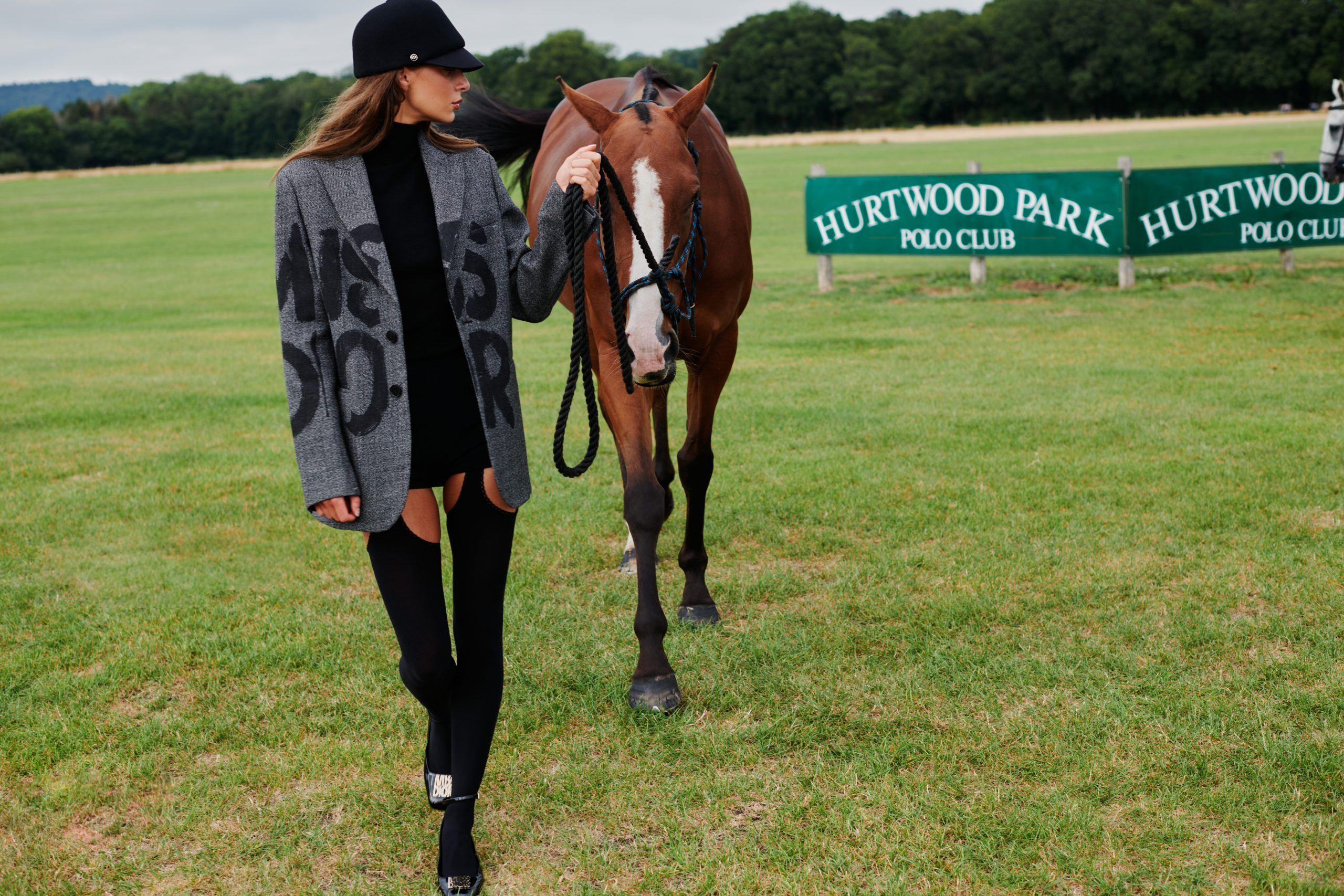
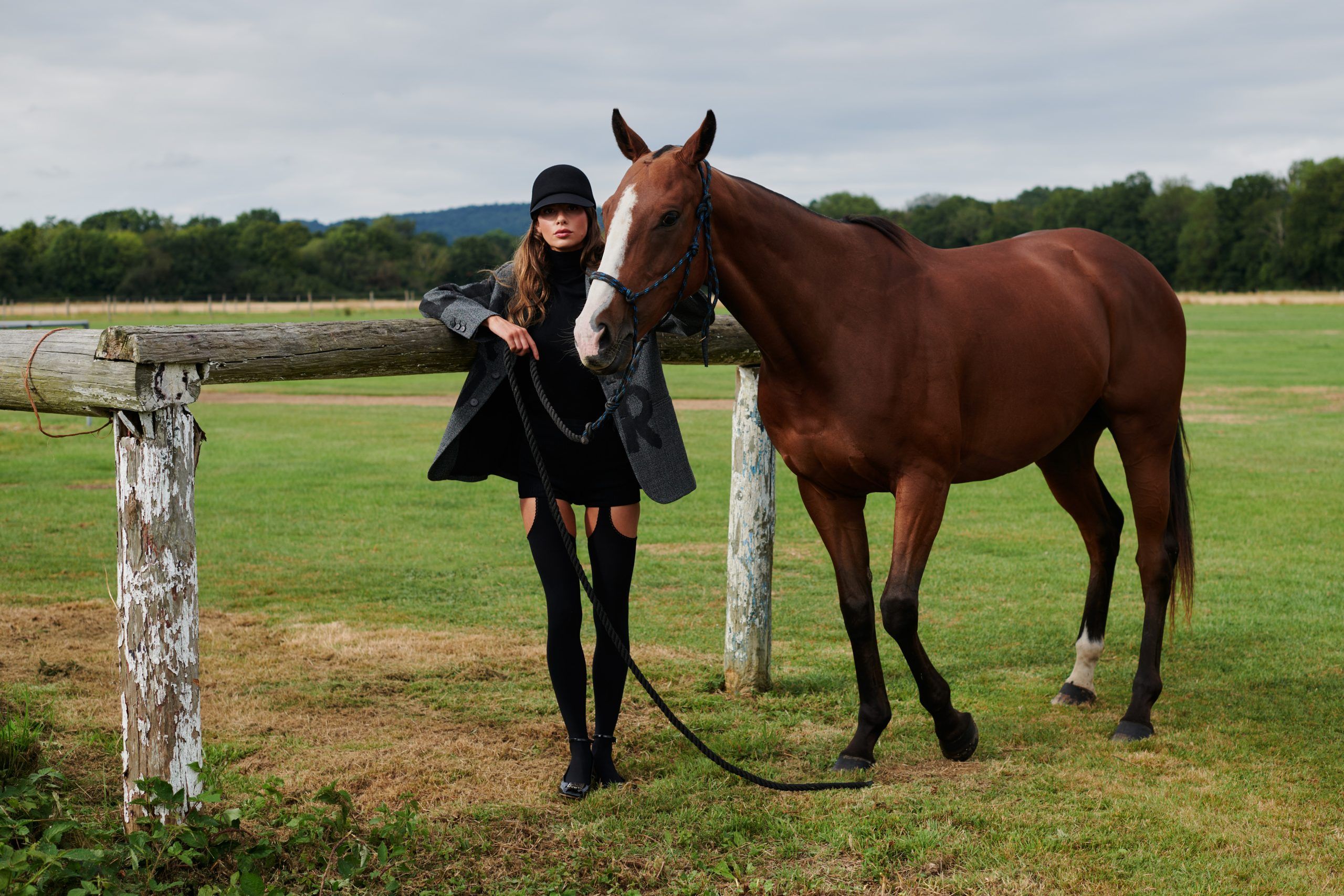
Kidnapped is streaming now on BBC iPlayer.
Interview Kelsey Barnes
Photography Rebecka Slatter
Styling Mollie French
Hair & Makeup Chantelle Phillips
Fashion Editor Laura Spriet
Styling Assistant Eden Molen
Location Hurtwood Park Polo Club
Special Thanks SJ Communications + CJ Polo

